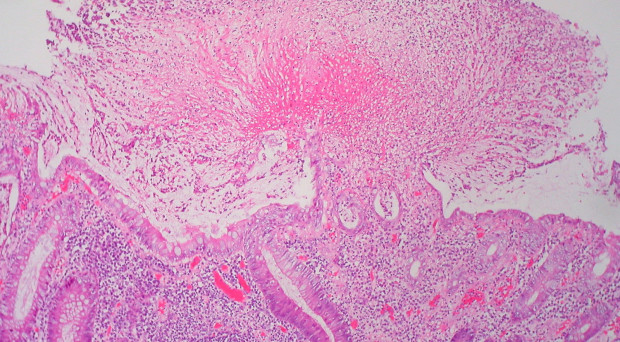
Fecal microbiota transplantation (FMT) has become increasingly common in the treatment of patients with refractory Clostridium difficile infection (CDI). It also holds promise for the treatment of medical conditions ranging from inflammatory bowel syndrome and Crohn’s disease to diabetes and metabolic syndrome.
In contrast to standard antibiotic therapies, which further disrupt intestinal microflora and may contribute to the recurrence of CDI, FMT restores normal intestinal microbiome and the healthy gut function. Despite therapeutic successes, little is known about the stability of transplanted microbiota over time. This study contributes to our understanding of the short-and long-term composition of gut microbiota following FMT.
Fecal samples collected before and after treatment were compared with data from the Human Microbiome Project (HMP). Treatment using FMT resulted in the rapid normalization of microbial composition in the patient, with the post-treatment profiles closely resembling the normal distribution of fecal microbiota from the donor.
While the composition of fecal microbiota in the donor and recipient varied over time, both remained in the large band characterized as normal in hundreds of healthy individuals collected as part of the HMP. Furthermore, while the composition of the microflora in FMT recipients and donors diverges over time, the recipient profiles stay within the same dynamic range as the original implanted donor material.
In fact, change in fecal microbial composition is an intrinsic and expected outcome. It is consistent with normal responsiveness to shifts in the diet and other environment factors. Variability should be taken into account when comparing microbial composition in normal individuals to those with dysbiosis characteristic of disease states, especially when considering therapeutic interventions and assessing outcomes.
As the field evolves, this variability may also have implications of diagnostic predictors of microbial imbalance, or dsybiosis, especially in patients with multiple gastrointestinal or other medical conditions.
Significantly, the performance of frozen and fresh preparations of fecal material was indistinguishable in our limited sample. While this finding warrants further study with a larger cohort, it has several implications for the widespread adoption of FMT.
First, the frozen preparation greatly simplifies the standardization and distribution of the fecal material. Second, it facilitates long-term storage of donor material for future study. Finally, it has potential over fresh material in the testing of fecal samples for pathogens, since some tests take several weeks to complete.
Related Links
4 reasons why fecal transplants aren’t mainstream. Yet.
The University of Minnesota Microbiota Therapeutics Program
Gut Ecosystem Restoration via Fecal Transplantation
Comments